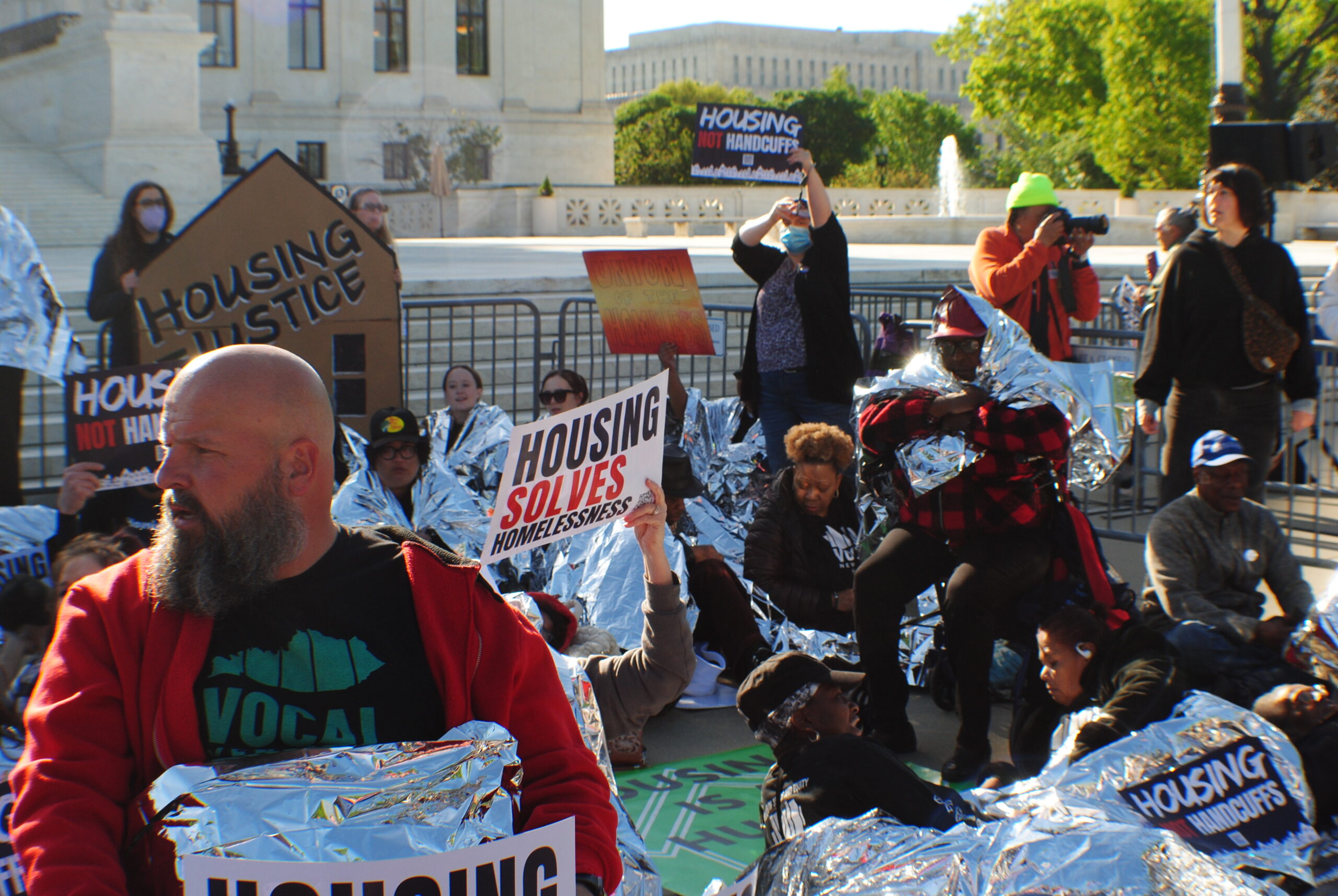The rally at the Supreme Court impacted me in several ways. I was not unmoved by the underlying reason for being on the steps of the highest court in the nation: protesting the upholding of the right for people to sleep under a blanket if they didn’t have an alternative.
We were fighting extreme bias in a place that has had the most fatal attacks against people experiencing homelessness. Lawyers and elected officials were forcefully attempting to make the case that parks and the appearance of a community were more valuable than the lives of vulnerable and marginalized human beings. In a nation fractured by politics and individualism, there persists a misguided belief that fines, handcuffs, and imprisonment serve as deterrents to homelessness. Yet, tragically, the reality speaks to the improbability of such a notion.
There were many things so I will move on to the numerous positive takeaways. For the first time in several years, there was this collaboration of advocates who worked on behalf of the unhoused population, those who were once in the population, and those currently working together to speak truth to power. It wasn’t perfect, of course. We are still making the same mistakes pointed out by Ron Casanova in his book “Each One Teach One.” We must always make space for people living the experience, not just those with lived experience. I take this critique personally because I had the opportunity to choose speakers. Although I didn’t make this decision alone, it was a mistake not to lift the voices of those struggling.









The rally on April 24th brought back a sense of nostalgia for me. The day brought back memories of buddy gray and the people of the Over-the-Rhine beloved community fighting to preserve a neighborhood surrounded by speculators, profiteers, and financial predators. Some people deeply rooted in the late 80s and 90s fights were there: Barb Poppe, Fred Karnas, and Bev Merrill were in the crowd. They know the power of organizing well and its effectiveness when we have had significant victories when we have organized and engaged in direct action.
Our advocacy during that time brought us victory and stinging defeat. We won the Cranston Gonzalez Act, The McKinney Vento Act, and the Education for Homeless Children and Youth Act. The losses are also numerous; Over-the-Rhine is no longer a beloved community if you are a gentrifier or partygoer. Every day, we lose a criminalization fight. City after city resorts to hiding people who experienced homelessness in jails and institutions versus helping them into housing.
Many longtime residents are long gone, moved to parts unknown, and replaced by fancy eateries and trendy nightclubs. The residents of Over-the-Rhine stopped protesting after the death of our leader, Buddy Gray. The community lost its will on that day. This pattern often happens when movements lose their charismatic leaders, from Dr. King and the civil rights movement to the loss of Mitch Snyder in the homeless movement. The beauty of this movement is that millions of leaders with lived experience can ensure that the Grants Pass demonstration is not a one-off; instead, it can be a harbinger of a new era of resistance. An organized Bring America Home Now Movement!
Written by NCH Executive Director, Donald Whitehead ; Edited by Kenia Mazariegos, Assistant Director of Communications


